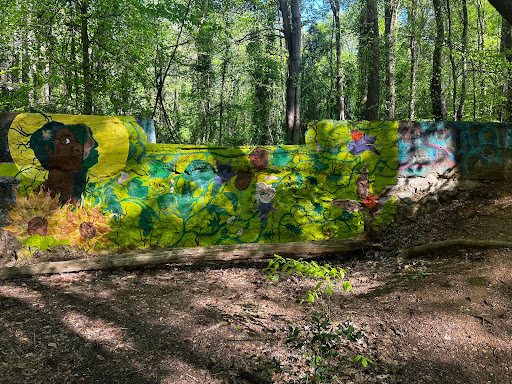Ashley Judd has had a life full of monumental firsts.
As an actress, her first leading role, in Victor Nunez’s “Ruby in Paradise,” won her the Independent Spirit Award for best actress and the grand prize at the Sundance Film Festival, to name two of many awards.
As a leading humanitarian, she was the first American to receive a Goodwill Ambassadorship from the United Nations Population Fund, blazing a trail toward reproductive justice and health for women across the globe.
Back stateside, she was the first woman ever to narrate the telecast for the Kentucky Derby, and perhaps most famously, the first celebrity to come forward with the truth about Hollywood producer Harvey Weinstein’s sexual misconduct, an act of bravery that helped launch a movement and landed her on the cover of Time as a Person of the Year.
After Thursday, April 8, Judd, whose career has involved so many firsts, now has the distinction of being the last-ever guest at Guilford College’s Bryan Series. The college made the decision earlier this year to discontinue the series as part of its ongoing efforts to stabilize finances. Over the past 29 years, the series has hosted world leaders, Nobel laureates and celebrities of every sort — and Judd is the last in that chain.
So, who exactly is Ashley Judd?
Judd grew up in Kentucky with her mother Naomi Judd and elder sister Wynonna Judd, the two of whom went on to form the wildly successful country music duo ‘The Judds’, who throughout the 1980s released six albums and 14 No. 1 hit singles.
After graduating from the University of Kentucky, Judd began her own career as an actress in 1991, with a role in “Star Trek: The Next Generation,” where, ironically, she acted alongside October’s Bryan Series guest LeVar Burton. She’s gone on to earn roles across film and television in the 33 years since, but her illustrious acting career is not the primary reason Judd came to Greensboro on Thursday.
For more than two decades, Judd has been a prominent and vigorous advocate for a broad range of humanitarian and political causes, including AIDS education and prevention, conflict and sexual violence in the Congo, reproductive justice in the United States, and many others. She’s written prolifically for publications like The New York Times and Time, organized for Democratic causes and campaigns, and even considered running for Senate in her home state of Kentucky in 2014. More recently, she’s focused on spreading awareness for mental health issues, such as dealing with loss and trauma.
At the Tanger Center in downtown Greensboro, Judd’s wide-ranging discussion of grief, trauma and growth often took on a more personal tone. Judd talked openly and candidly about her struggle to deal with trauma from both her childhood and, more recently, her grief at her mother’s passing.
Discussing the difference between grief and trauma, Judd described grief as “natural. It is organic. It is inevitable. It is a part of life.” Grief passes through stages, Judd explained, but ultimately arrives at finding meaning.
“And then there’s the trauma,” Judd continued, “which is stuck. It’s not processed by the brain and the nervous system … It’s hijacking. I can’t control it.”
Judd went on to detail her own journey toward dealing with trauma inflicted on her in childhood, saying, “The only one who can love you the way you want to be loved is you. And self-care isn’t selfish, it’s self-worth. You need directions. You need a mentor. You need a qualified therapist.”
Throughout the talk, Judd focused not just on her own story but on its applications to those undergoing similar struggles. She emphasized that the reason she wanted to tell her story in the first place was to help people, particularly young people, saying, “The cry of every lost child is, ‘Where was everybody?’ And now I can stand here and say, ‘Here I am, and here you are.’”
The talk ended with Judd doing positive affirmations with the audience. And with that, Guilford College’s Bryan Series officially came to an end.
Despite the sadness accompanying the end of a heralded Guilford tradition, it would be hard to find a guest as fitting to end on as Judd. In addition to her distinguished career, the actress’s story of change, growth and perseverance through adversity in order to go on and effect change in the world should serve as an inspiration and model for Guilford College and its students.













